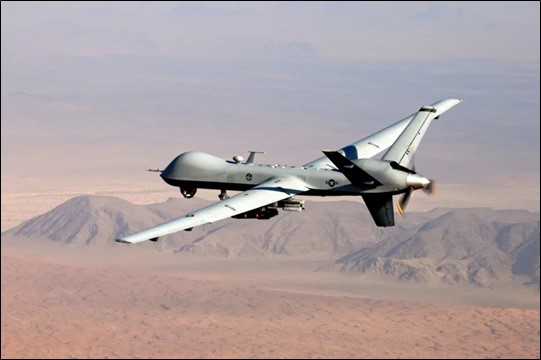Academy SITREP – U.S. Drone Strike in Iraq Kills Iranian-Backed Militia Commander

What has Happened:
- Last evening, a U.S. drone strike in Iraq killed a commander of the Iran-backed Iraqi militia that the U.S. said was responsible for the attack that killed three American service members (and injured over 40) at a base in Jordan late last month.
- The Pentagon reported that the target was a commander of the Iraqi militia group Kataib Hezbollah.
- This strike was a follow-up to the initial phase (see SITREP) of retaliatory attacks launched by the U.S. last Friday when warplanes destroyed (or severely damaged) most of the IRGC and militia targets that they engaged in Syria and Iraq.
- In early January (see SITREP), the U.S. killed a leader of another militia (Mushtaq Jawad Kazim al-Jawari from the Iran-backed Harakat al-Nujaba) who was involved in planning and carrying out attacks against American personnel in the region.
- Following these strikes, the Iraqi Prime Minister accused the U.S. of violating his country’s sovereignty and said that the latest attack would further push Baghdad to end the presence of the U.S.-led military coalition in the country.
- Meanwhile, Israeli Prime Minister Netanyahu rejected Hamas’s terms for a ceasefire in Gaza and Israel has announced that it is planning a ground offensive in the densely- populated city of Rafah in order to target Hamas’s smuggling routes to Egypt.
Why it Matters:
“President Biden is taking the required action to retaliate for the killing of the three U.S. service members through retribution strikes on the Iraqi Shia militia leaders responsible. He is willing to risk alienating Iraq’s leadership to show strength to the American people and to deter further attacks. This is both a decision targeted at those responsible to show that they and others will be held accountable, and it sends a message to Americans that the attacks are unacceptable and will not be tolerated. There are behind the scenes discussions with the Iraqi leaders that the U.S. will act in Iraq if the Iraqi government cannot stop the attacks. The Iraqi government is heavily influenced by both Iran and the Shia militia groups, but they want to remain independent of Iran’s control. Prime Minister Mohammed Shia’ Al Sudani is in a tough position by not wanting it to appear as though he has little control by allowing this low-grade war to take place between the U.S. and the Iranian-backed Shia militias. He knows, however, that the U.S. was the main player in setting back ISIS in Iraq and that Iraq needs the U.S. to contain the threat and stop it from returning. Eventually the U.S. forces will leave Iraq to both countries’ benefit, but now is not the time. We can expect the discussions of U.S. forces leaving Iraq to go on for a long time while the U.S. conducts its necessary business.” – General Robert Walsh
“Given that the militia leader killed was not believed to be a member of the IRGC, I would not expect any direct response from Iran. I would assess the view in Tehran is that the Kataib Hezbollah (KH) leader’s death is the ‘cost of doing business’ and he became collateral damage (i.e., better a KH death than an IRGC death is Iran’s perspective). I would not assess much more than rhetoric from Iran. That doesn’t mean that KH will not respond, and I would expect them to engage U.S. forces. Loss of key leadership may cause a delay or reassessment of current/future strikes, but will not derail their activity. KH will evaluate the compromise that led to the strike and examine their operational security, but they will eventually compromise their leadership’s locations/patterns of life. Everyone is replaceable in this context. The direct strike in Baghdad creates pressure on the Iraqi government, but I don’t see this as putting the U.S. on a path where the Iraqi government forces the U.S. to leave. Iraq still has significant issues within their borders related to the proxies and ISIS elements that the U.S. continues to support Iraq in targeting. Given the nature of this fight, these events tend to get more media attention than is warranted in the broader strategic context of events that are evolving across the region.” – General Robert Ashley
“The strike was very precise meaning that his pattern of activities was known, or his vehicle was tagged and tracked. The network in Iraq and Baghdad allows for much better tracking and more reliable sources. That degree of precision causes less blow-back from the Iraqi government as KH is part of the Popular Mobilization Forces (PMF). Precise strikes of this nature tell the KH leaders and forces that we know where they live and can do this repeatedly, which is a better deterrent.” – General Frank Kearney


